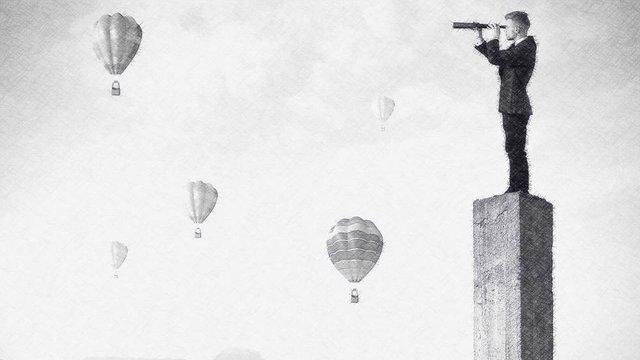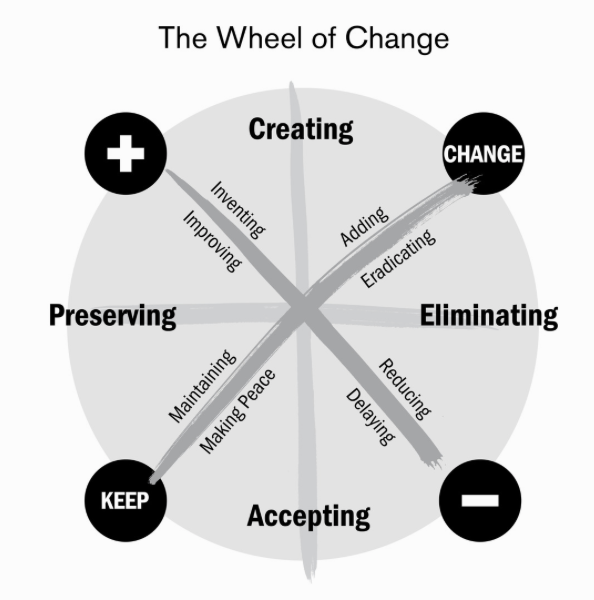'We start with forecasting our environment'

Forecasting is what we must do after acknowledging environments power over us. It comprises of three interconnected triple A's stages: Anticipation, Avoidance, and Adjustment.
1. Anticipation
When our performance has clear and immediate consequence, we rise to the occasion. We create our environment, we don’t let it recreate us. The problem is that they majority of our day consists of minor moments, when we’re not thinking about the environment or our behavior because we don’t associate the situation with any consequences. These seemingly benign environments, ironically, are when we need to be most vigilant, because when we’re not anticipating the environment, anything can happen.
2. Avoidance
Half the leaders don’t need to learn what to do, they need to learn what to stop. We rarely triumph over an environment that is enjoyable, we’d rather continue enjoying it than abandon or avoid it because, It takes enormous willpower to stop doing something enjoyable.
Our fundamental misunderstanding of the relationship between our environment and temptation is misguiding us. Temptation can corrupt our values, health, relationships, and careers. Because our delusional belief that we control our environment, we choose to flirt with temptation rather than walk away. We constantly testing ourselves against it. And dealing with the shock and distress when we fail. Its one of the most common behavioral issues among leaders: succumbing to the temptation to exercise power when they would be better off showing restraint.
3. Adjustments
Adjustments if we’re lucky, is the end product of forecasting. Only after we anticipate our environments impact and eliminate avoidance as an option. Often Adjustments happen when we’re desperate to change, or have unexpected insight, or are shown the way by another person, but that doesn’t have to be the case.
The Wheel of Change
Let’s review:
We are geniuses at coming up with reasons to avoid change. We make excuses. We rationalize. We harbor beliefs that trigger all manner of denial and resistance. As a result, we continually fail at becoming the person we want to be. To understand the problem, you not only have to admit there is a problem. You also have to appreciate all your options, and with behavioral change. It's important to remember that we do have options; Here are the four options:

1. Creating; represents positive elements that we want in our future
The challenge here is to do it by choice, not as by stander. If we’re satisfied with our life, not necessarily happy or delighted that we’ve exceeded our wildest expectation, just satisfied – we yield to inertia. We continue doing what we’ve always done. We always have a chance to create better behavior in ourselves - how we treat people, how we respond to our environment, where we permit to trigger our next action. All we need is the impulse to imagine a different us.
2. Preserving; represents the positive elements that we want to keep in the future
Preserving sounds passive and mundane, but it’s a real choice. It requires soul-searching to figure out what serves us well, and discipline to refrain from abandoning it for something new and shiny and not necessarily better. Because we rarely ask ourselves, what’s in my life is worth keeping? After all, preserving a valuable behavior means one less behavior we have to change
3. Eliminating; represents the negative elements that we want to eliminate in the future
Unless we eliminate some of their busywork, we would never create something new for ourselves. The real test here is sacrificing what we enjoy doing.
4. Accepting; represents the negative elements that we need to accept in the future
In business, we have an abundance of metrics – market share, quality scores, customers feedback – to help us achieve acceptance of a dire situation or the need for change. But our natural impulse is to think wishfully rather than realistically. We take in what we want to hear, but tune out the displeasing notes that we need to hear. Accepting is most valuable when we are powerless to make a difference
When we bluntly challenge ourselves to figure out what we can change and what we can’t, what to lose and what to keep, we often surprise ourselves with the bold simplicity of our answers. Good things happen when we ask ourselves what we need to create, preserve, eliminate, and accept. A test I suspect few of us ever self-administer.
Discovering what really matters is a gift, not a burden. Accept it and see it.
The negatives are inevitable when we address why we don’t do something, but there’s hope. Executing the change, we hold as a concrete image in our mind is a process. It requires vigilance and diligent self-monitoring. More than anything, the process resuscitates an instinct that’s been drilled into us as tiny children but slowly dissipates as we learn to enjoy success and fear failure, which is – the importance of trying.